KEEPER (2025)
A romantic anniversary trip to a secluded cabin turns sinister when a dark presence reveals itself, forcing a couple to confront the property's haunting past.
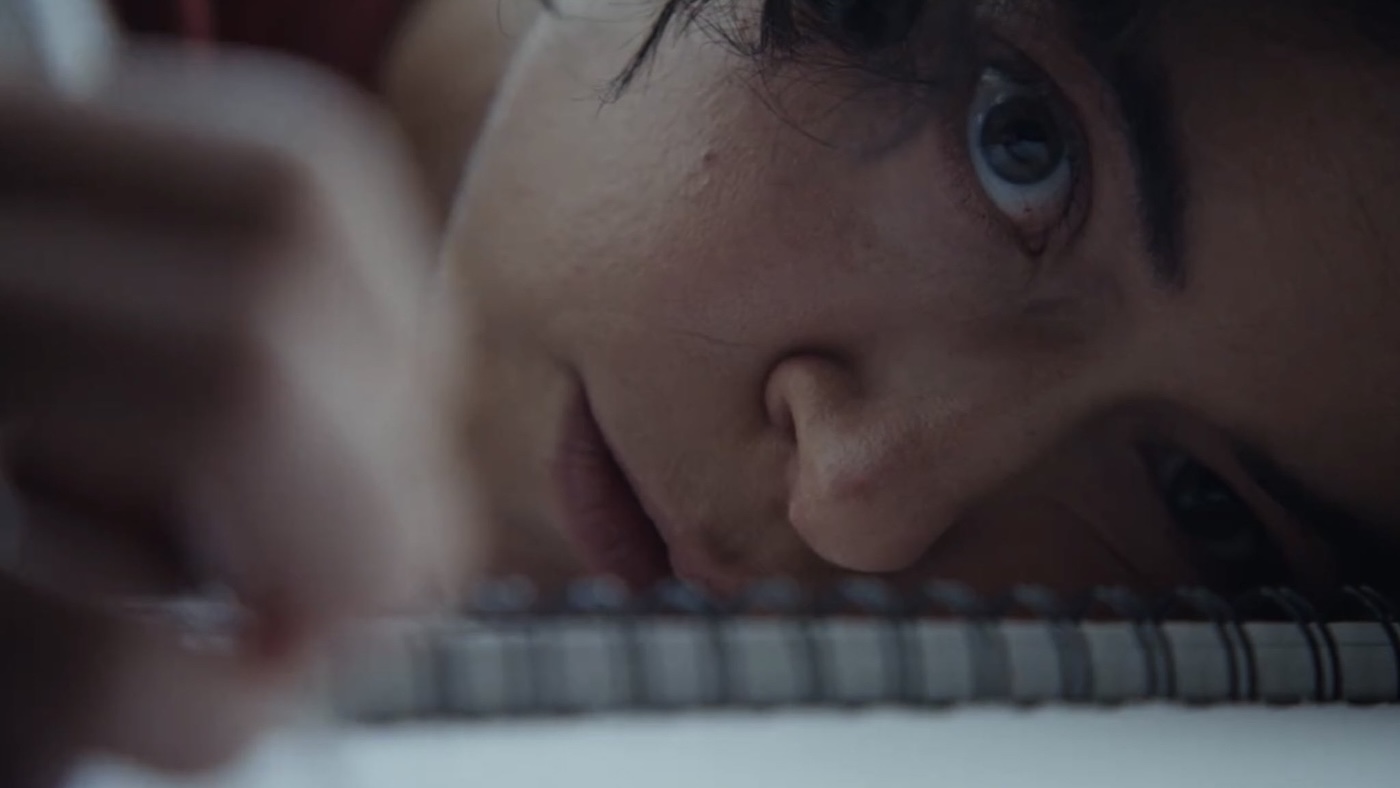
A romantic anniversary trip to a secluded cabin turns sinister when a dark presence reveals itself, forcing a couple to confront the property's haunting past.

The past year’s been remarkably successful for writer-director Osgood Perkins. Since his atmospheric debut, The Blackcoat’s Daughter (2015), and the visually striking Gretel & Hansel (2020), the actor-turned-filmmaker has steadily risen in prominence as one of contemporary horror’s daring voices. His supernatural police procedural, Longlegs (2024), earned widespread critical acclaim and ultimately became the highest-grossing independent film of 2024.
Only months later, he returned with The Monkey (2025), a darkly comedic adaptation of the namesake Stephen King story. Although it failed to replicate the widespread acclaim of its predecessor, it sustained audience interest and maintained an air of curiosity around Perkins’ increasingly enigmatic oeuvre. Proving his growing reputation as Neon’s resident master of the macabre, his latest endeavour is another masterclass in atmospheric horror. Infusing a deceptively simple romantic premise with his signature brand of somnambulistic unease, Keeper makes for a beguiling and surreal folkloric chamber piece.
Liz (Tatiana Maslany) and Malcolm (Rossif Sutherland) are at a precarious juncture in their relationship where it will either evolve or quietly disintegrate. To mark their first anniversary, Malcom persuades Liz to accompany him to his family’s remote woodland property for a romantic getaway. What was originally intended to be a celebratory interlude soon curdles when Malcolm’s carefully maintained veneer begins to slip, revealing a duplicitous web of half-truths.
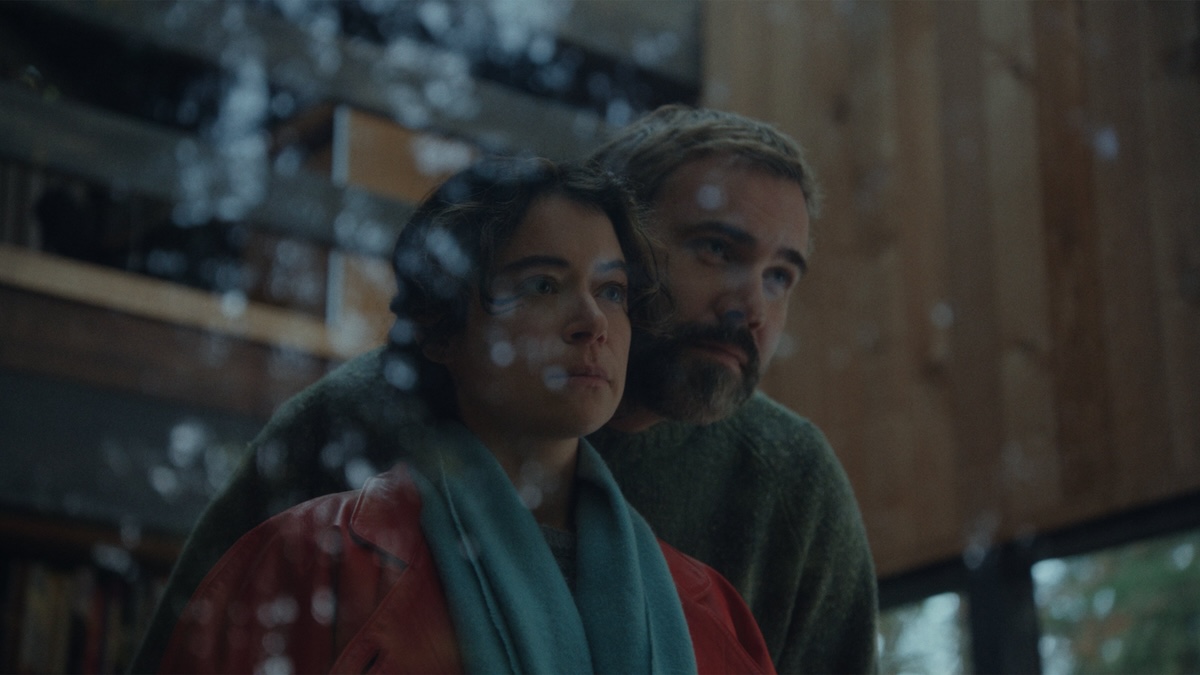
The uninvited intrusions of his abrasive cousin Darren (Birkett Turton) and his Eastern European girlfriend Minka (Eden Weiss) only heighten Liz’s growing anxieties, provoking suspicions that her partner is living a double life with a second family. When Malcolm is suddenly asked to attend an emergency at his hospital, Liz finds herself isolated in the increasingly oppressive cabin. As she waits for her partner to return from the city, she begins to realise that the retreat might not be a space for celebration, but a stage for something much darker and more sinister.
Reuniting with the filmmaker following her carefree appearance in The Monkey, Tatiana Maslany continues to demonstrate her versatility as an actress. She delivers an emotionally rich and psychologically layered performance as Liz. The actress initially presents the character as reserved and understandably apprehensive, struggling to navigate the fraught space between appeasing her boyfriend and preserving her autonomy. However, once she’s completely removed from her familiar, both geographically and romantically, a creeping disquiet behind her eyes subtly suggests an impending internal collapse.
Without ever succumbing to overwrought theatrics, she allows the slightest facial expression and casual body movement to communicate her psychological descent. Whether it’s the subtle tremor of the mouth or the slightest misalignment in her gaze, her face articulates the quiet erosion of sanity. Maslany seamlessly threads disparate emotions together, oscillating between fragility and resolve with a precision that recalls Catherine Deneuve’s psychologically rich performance in Roman Polanski’s Repulsion (1965). Her docility curdles into dread and then blossoms into madness, often with a devastating instant. It’s a phenomenal turn that simultaneously serves as a fragile anchor and proof that, in the correct hands, even the most undernourished narrative can find its emotional core.
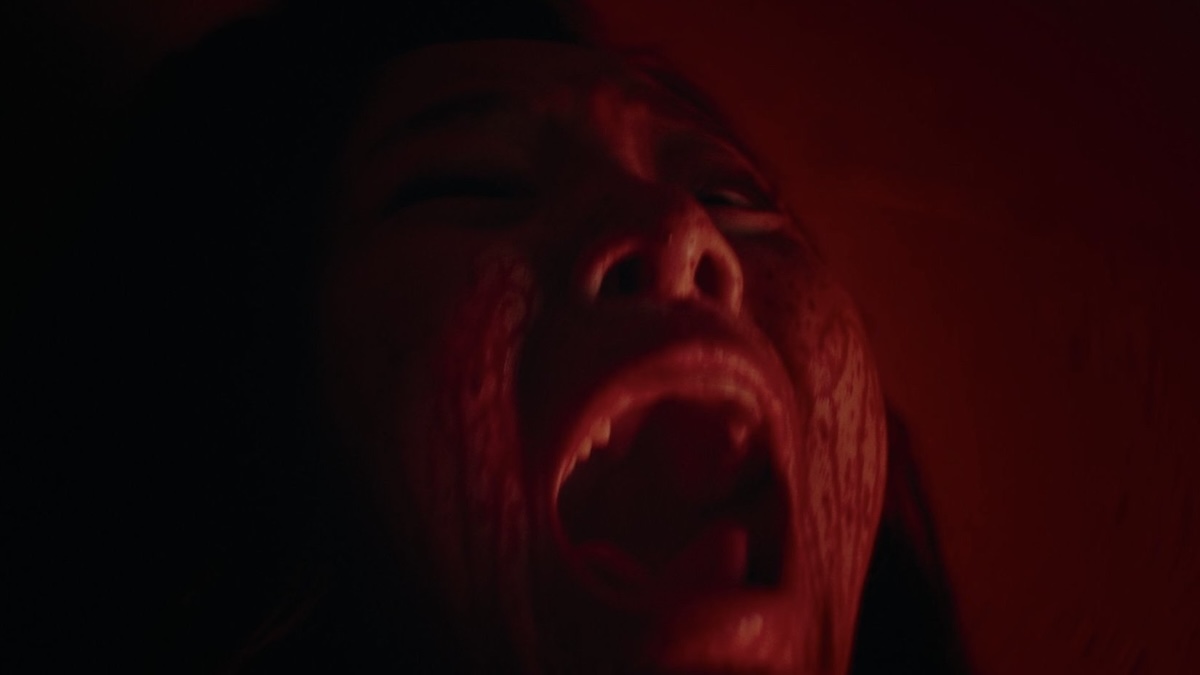
After exploring an entirely new cinematic wheelhouse with The Monkey, Perkins reclaims the successful alchemy of surrealist horror, supernatural tension, and folkloric terror that traces back to his earlier work. Initially, Keeper’s cabin in the woods milieu invites superficial comparisons to contemporary horrors including Drew Hancock’s Companion (2025) and Michael Shanks’ Together (2025). However, what makes the experience unexpectedly refreshing is Perkins’ commitment to prioritising the disquieting imagery and genuine mystery rather than the underlying themes and subtext. After opening with a foreshadowing montage of women throughout different eras encountering something bloodcurdlingly horrific, there’s a pervading dark atmosphere the moment Liz and Malcolm arrive at the cabin. This feeling grows into sterile suffocation as each subsequent frame begins to bear his unmistakable cinematic idiosyncrasies, methodically immersing the audience in a perpetual state of suffocating dread while enveloped in a depressingly oppressive bleakness.
Perkins possesses an unerring intrinsic ability to excavate surreal terror by locating unspeakable sights in such mundane motifs. Sequences such as Liz observing the surrounding woodland through enormous windows or Malcolm scouring the ceiling with the dreadful awareness of someone anticipating a ghastly revelation are exemplary of Perkins’ command of controlled dread. He composes his images with his subjects immaculately centred and surrounded by a disconcerting amount of headroom. This negative space is weaponised to great effect, like a psychological trap designed to deliberately misdirect the audience’s attention and subtly guide our imaginations to project our most personal demons into the shadows. The true horror remains in the malicious shapes materialising in the background and the indistinguishable silhouettes lurking on the periphery.
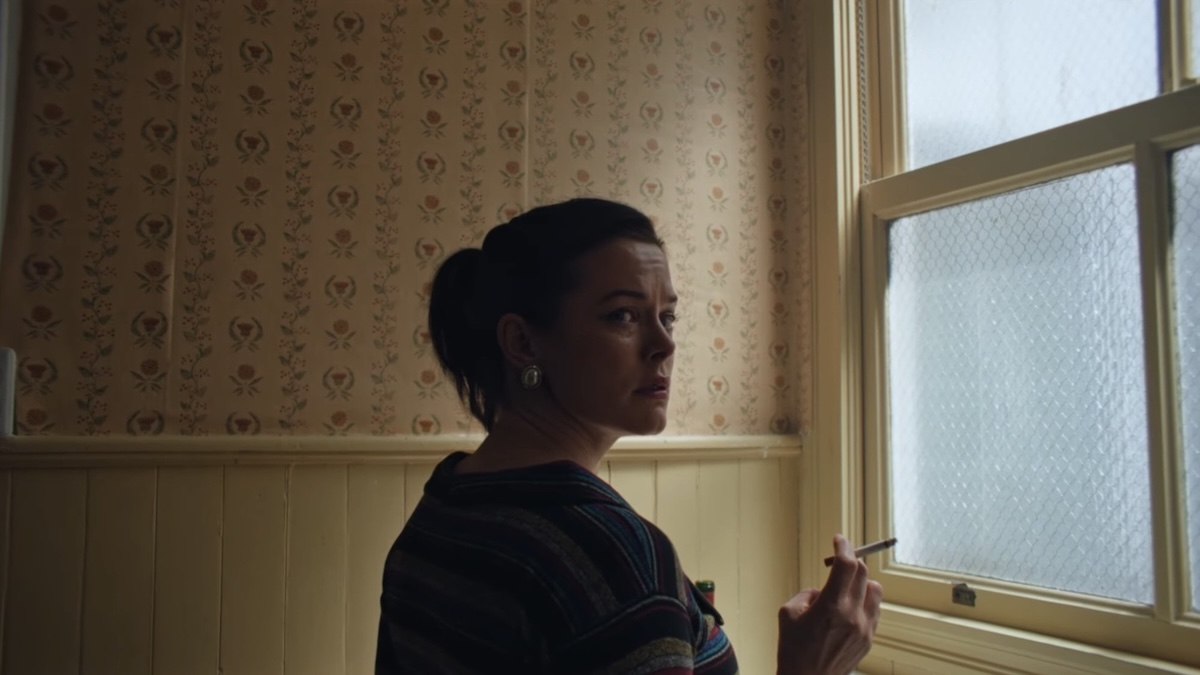
This subversive horror finds a wonderful visual accomplice in Jeremy Cox’s (The Monkey) photographic sensibilities. Rather than capturing Malcolm’s cabin and its surrounding environment with sweeping wide shots, Cox favours tightly constructed and oppressively intimate compositions to heighten the persistent feeling of claustrophobia. His manipulation of Danny Vernette’s (The Bearded Girl) production design is equally assured, utilising the central location’s unique angular architecture to create a deceptive labyrinth. As a result, the disquieting lack of geography heightens the sense of disorientation. Much like Liz, we can never entirely be certain where we stand, where we have been, or if an escape is even possible.
Similarly, Graham Fortin (Ari’s Theme) and Greg Ng (Longlegs) deserve particular recognition for their hypnotic editing techniques that echo the psychologically charged transitions of Park Chan-wook (No Other Choice). They both deploy dissolves to create a foreboding sense of disorientation, enveloping the audience in a dreamlike state that mirrors Liz’s own gradual dislocation from reality. An intensely memorable crossfade shifts from Liz submerged in a luxurious bathtub to the slow movement of the nearby river. It’s a cinematic equivalent of her being spiritually consumed by this cursed vacation.
A great many supernatural thrillers often collapse the instant they are compelled to reveal their monsters. The apparitions that usually crawl out of the shadows prove nowhere near as eldritch as the terrors our minds anticipate. However, Keeper is the rare exception that offers an unveiling that never feels like a disappointment. Attentive horror aficionados may have caught fleeting glimpses of these enigmatic beings in Neon’s deliberately obscure marketing campaign.
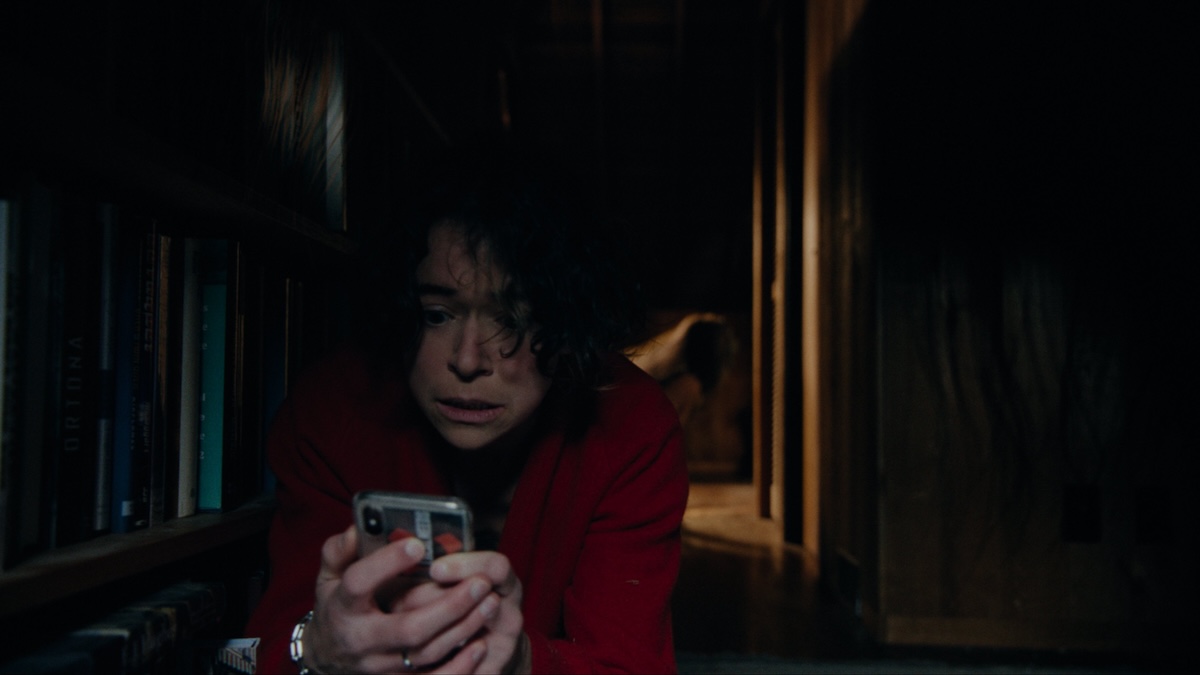
Without venturing into heavy spoiler territory, the paranormal creatures Perkins conjures are genuinely unnerving and impossible to ignore. Once the true nature of the threat is revealed, Amazing Ape Productions and Werner Pretorius (The Monkey) unleash a series of bizarre and grotesque make-up effects. One particular unnerving manifestation that fascinatingly echoes a recurring line of dialogue resembles the visceral aesthetic of a Francis Bacon or Salvador Dalí canvas violently brought to life. It functions as a symbol for the suffocating psychological repression endured by women trapped in toxic relationships, transforming their suppressed emotional anguish into something folkloric and utterly unforgettable.
Though the early passages assemble a series of disquieting layers as equally foreboding and sumptuous as the welcoming cake perched upon Malcom’s countertop, Keeper ultimately squanders its promise as it lumbers toward its denouement. Nick Lepard’s (Dangerous Animals) screenplay begins with a genuinely arresting premise, one that Perkins initially enriches with his suffocating atmosphere. Still, the longer the narrative unwinds, the more it struggles to keep our engagement.
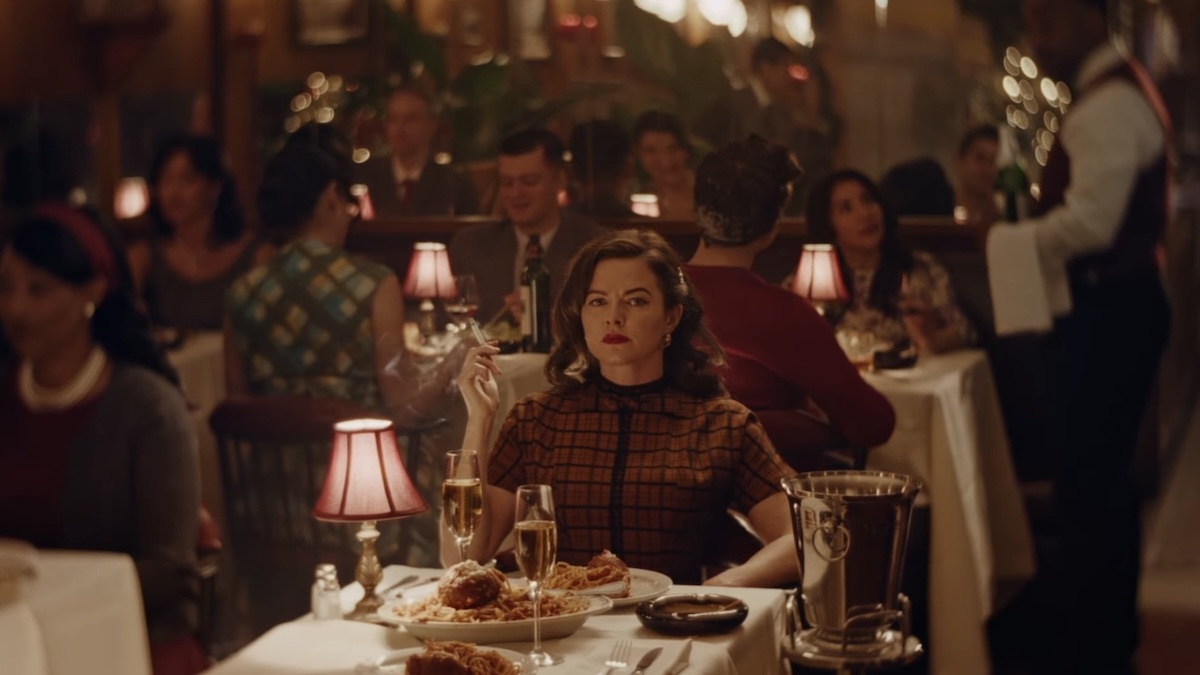
The second act, in particular, often becomes too preoccupied with circling the central mystery with almost liturgical repetitions that often feel like the filmmaker is attempting to wear down the audience’s psyche through sheer monotony. We frequently watch Liz carry out mundane household chores, only to be lured into another area by an ambiguous sound that predictably culminates in nothing. Likewise, her nightmares become plagued with supernatural figures and distorted images before disintegrating the moment she wakes. Lepard’s script certainly builds towards a unique narrative twist, but an argument could be made that there simply isn’t enough substantive material to justify a 100-minute runtime. Or perhaps there is enough material, but Perkins’ penchant for prolonged atmospherics fails to translate into riveting cinema. Regardless, the end result remains severely underwhelming and may leave many viewers unengaged rather than unsettled.
Although Keeper may not represent the best of Osgood Perkins’ oeuvre, it emerges as a truly unique nightmare within his impressive body of work. The filmmaker once again affirms his status as one of the few genuinely indispensable voices in contemporary horror, shaping a claustrophobic atmosphere through his nightmarish visual language that profoundly unsettles the audience in the most exquisite ways. Unfortunately, his idiosyncratic brand of depressingly bleak horror and somnambulistic dread cannot fully obscure a screenplay that is both weak in construct and shaky in execution. Its narrative feels frustratingly underdeveloped, and its dialogue occasionally becomes weighed down by exposition so clumsy it’ll provoke viewers to cover their face and groan in terror… but sadly not for the reasons Perkins’ intended.
CANADA • USA | 2025 | 99 MINUTES | 2:35:1 | COLOUR | ENGLISH

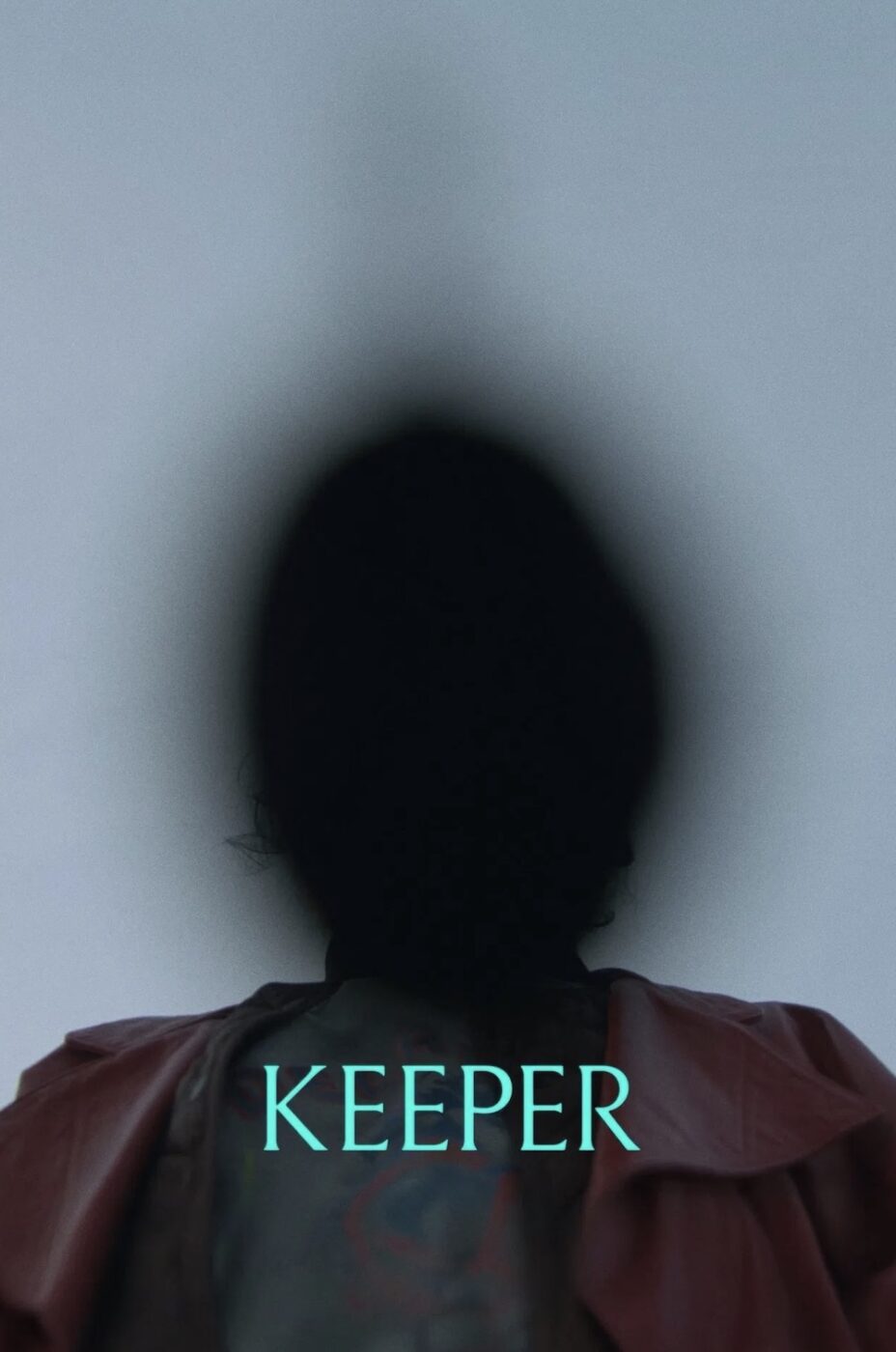
director: Osgood Perkins.
writer: Nick Lepard.
starring: Tatiana Maslany, Rossif Sunderland, Birkett Turton, Eden Weiss & Claire Friesen.
